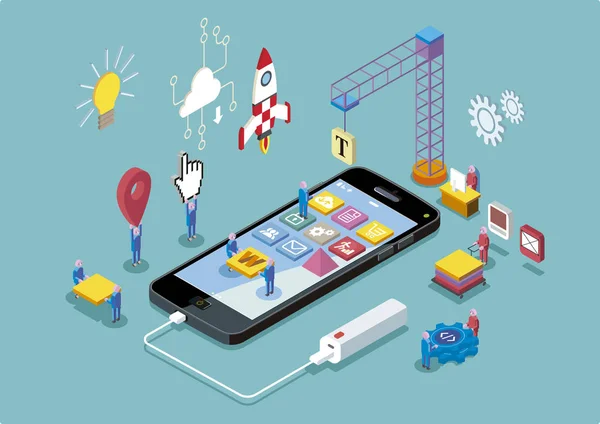Revolutionizing Mobility: Cutting-Edge Mobile App Development In Melbourne
In the vibrant city of Melbourne, where innovation and technology converge, a revolution in mobility is underway. From bustling streets to serene neighborhoods, the pulse of this dynamic metropolis beats with the rhythm of progress. At the heart of this transformation lies cutting-edge mobile app development, reshaping the way people move and interact with their surroundings. In this article, we delve into the burgeoning landscape of mobility solutions in Melbourne and explore the role of mobile app development in driving this evolution.
The Rise of Mobility Challenges in Urban Centers
Urbanization brings with it a myriad of challenges, chief among them being mobility. As populations swell and cities expand, the need for efficient transportation systems becomes paramount. Congestion, pollution, and accessibility emerge as pressing concerns, demanding innovative solutions to enhance mobility and improve the quality of urban life.
Addressing Urban Mobility Through Technology
In response to these challenges, Melbourne has embraced technology as a catalyst for change. From smart infrastructure to data-driven insights, the city is harnessing innovation to reimagine mobility. At the forefront of this transformation are mobile apps, offering personalized, on-demand solutions to navigate the urban jungle.

Role of Mobile App Development in Melbourne's Mobility Revolution
Mobile apps have become indispensable tools for modern urbanites, providing seamless access to transportation services, real-time navigation, and mobility insights. In Melbourne, a burgeoning ecosystem of app developers is driving innovation in this space, catering to the diverse needs of residents and visitors alike.
Enhancing Public Transportation
One of the primary focuses of mobile app development in Melbourne is enhancing public transportation services. Through intuitive apps, commuters can effortlessly plan their journeys, access real-time schedules, and receive alerts about disruptions or delays. Apps like "TransitMate" and "PTV" have become indispensable companions for navigating Melbourne's extensive public transit network, empowering users to travel with confidence and convenience.
Facilitating Sustainable Mobility
Sustainability lies at the core of Melbourne's mobility agenda, with mobile apps playing a pivotal role in promoting eco-friendly transportation options. Ride-sharing apps, electric scooter rentals, and bike-sharing platforms offer viable alternatives to traditional car-centric travel, reducing emissions and easing traffic congestion. By incentivizing sustainable mobility choices, apps like "Lime" and "oBike" contribute to building a greener, more livable cityscape.
Empowering Micro-Mobility Solutions
The concept of micro-mobility has gained traction in Melbourne, catering to short-distance travel needs within urban precincts. Electric scooters, hoverboards, and electric bikes have proliferated across the city, offering nimble and efficient modes of transportation. Mobile apps enable users to locate, unlock, and pay for these micro-mobility vehicles seamlessly, unlocking a new dimension of urban mobility. Platforms like "Beam" and "Neuron" are spearheading this micro-mobility revolution, reshaping the way people navigate Melbourne's streets.

Integrating Multi-Modal Journeys
Seamless connectivity lies at the heart of effective mobility solutions, and mobile apps are instrumental in integrating multi-modal journeys. Through comprehensive journey planning and ticketing integration, users can seamlessly transition between different modes of transportation, optimizing their routes for efficiency and convenience. Apps like "Moovit" and "Google Maps" offer comprehensive multi-modal journey planning, empowering users to navigate Melbourne's diverse transportation landscape with ease.
Opportunities for Innovation and Collaboration
- Data-Sharing Initiatives: Collaboration between government agencies, transportation operators, and technology companies can facilitate data-sharing initiatives. By pooling resources and sharing anonymized data sets, developers can gain valuable insights into commuter behavior, traffic patterns, and service demand, enabling the creation of more efficient and user-centric mobility solutions.
- Open APIs and Interoperability: Standardizing application programming interfaces (APIs) across different transportation systems promotes interoperability and seamless connectivity. Developers can leverage open APIs to integrate disparate services into a unified platform, allowing commuters to access multiple modes of transportation through a single app interface.
- Partnerships with Emerging Technologies: Collaborating with companies developing emerging technologies such as electric and autonomous vehicles presents new opportunities for innovation. By integrating these technologies into mobility apps, developers can offer users sustainable and futuristic transportation options while addressing environmental concerns and reducing carbon emissions.
- User-Centric Design and Feedback Loops: Engaging users in the design and development process through feedback loops and user testing enables developers to create more intuitive and user-friendly apps. By understanding users' needs, preferences, and pain points, developers can tailor mobility solutions to meet the diverse needs of commuters, ultimately enhancing the overall user experience.
- Public-Private Partnerships: Forming public-private partnerships fosters collaboration between government entities and private sector companies in developing and implementing mobility solutions. By combining public sector expertise and resources with private sector innovation and agility, these partnerships can accelerate the deployment of smart mobility initiatives and infrastructure projects, benefiting both stakeholders and the community.
- Investment in Research and Development: Investing in research and development (R&D) initiatives stimulates innovation in mobility technology and infrastructure. By allocating resources to R&D projects, governments, academia, and industry stakeholders can drive technological advancements, explore new mobility concepts, and pilot innovative solutions, ultimately shaping the future of urban transportation.
210/134-136 Cambridge St, Collingwood VIC 3066, Australia
Phone: 613-9001-6255

